The 25 coolest women in Silicon Valley
Michelle Zatlyn

Jess Lee
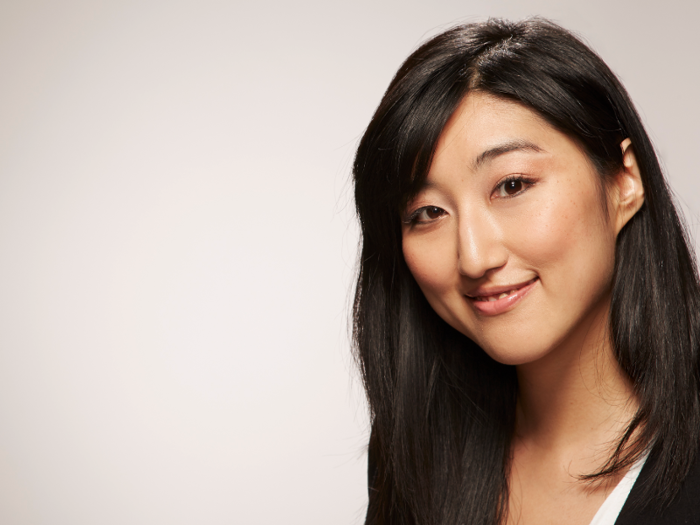
Cofounder and CEO, Polyvore
Yahoo bought the social shopping site Polyvore last July reportedly for a price of about $200 million, saying the company's expertise in community-driven experiences and retailer-supported commerce paired with Yahoo's premium content showed "amazing potential." Lee said Yahoo CEO Marissa Mayer had a part in shaping her career when she interviewed Lee for Google's elite associate product manager program back in the early 2000s. Since it joined the Yahoo family, Polyvore expanded in February to include a new menswear category, an area that Pinterest is also aggressively going after.
Stacy Brown-Philpot
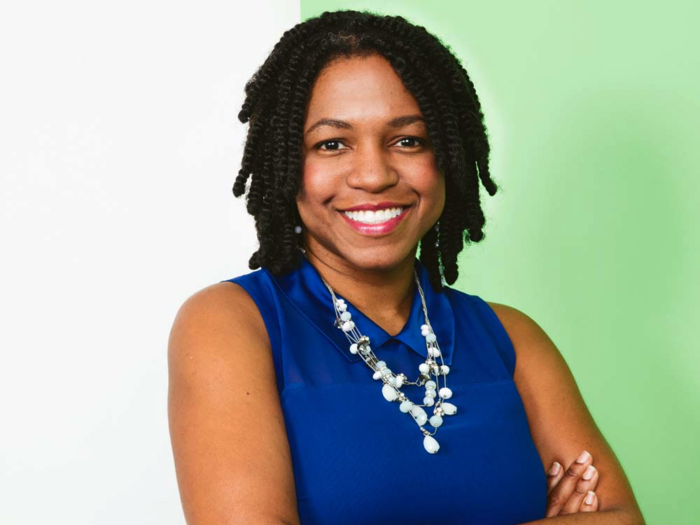
CEO, TaskRabbit
After Leah Busque stepped down from the role of TaskRabbit CEO for a second time, Brown-Philpot took over in April, becoming the first black female CEO in Silicon Valley. The former Google employee studied startups and played a lead role in global consumer operations before joining TaskRabbit in 2013. She took unpopular but necessary steps — including layoffs — to get the startup on track toward its goal of profitability this year.
Talia Jane
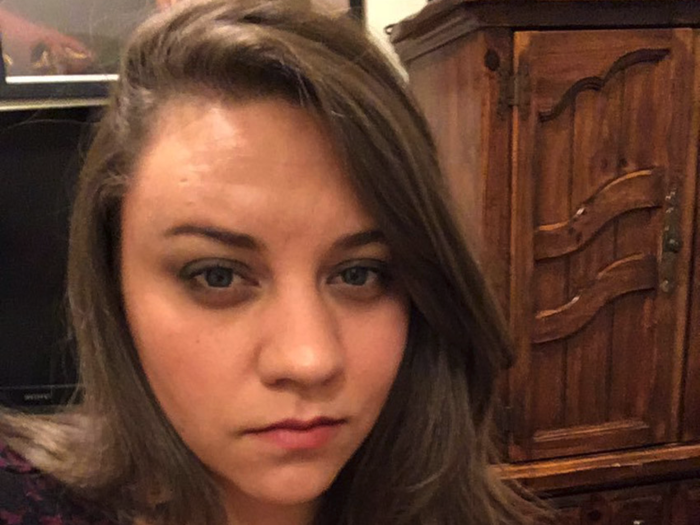
Ex-employee, Yelp
Jane, a former Yelp employee, sparked conversations in Silicon Valley when she wrote an open letter to Yelp CEO Jeremy Stoppelman claiming that some of his employees just couldn't make ends meet; hours later, she was fired. Her missive noted that she made only $8.15 an hour after taxes, claiming she couldn't afford groceries and that "bread is a luxury" to her. Her letter not only went viral, but it also made tech companies confront whether they were paying a living wage in light of San Francisco's dizzying rent prices.
Safra Catz
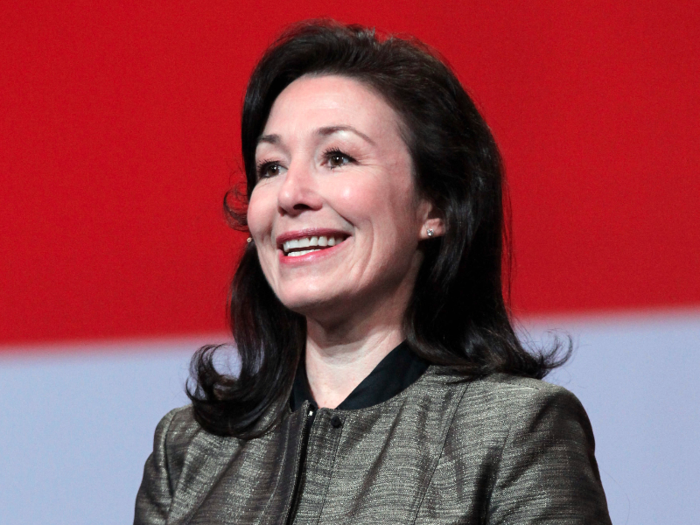
Co-CEO, Oracle
In the first year since Larry Ellison, the Oracle founder and chairman, stepped down as CEO — he moved to the role of chief technology officer and was succeeded by co-CEOs Mark Hurd and Safra Catz — the company has set off on a startup-buying spree. In its fifth and most recent acquisition of 2016, Oracle purchased Opower, a cloud-based energy-management company used by more than half of the world's largest utility companies, for $532 million. Before that it bought another cloud-services company, Textura, for $663 million, expanding its offerings in the construction industry.
Though Oracle's cloud business is still just a fraction of the company's overall revenue, Ellison thinks it could lead Oracle to become the first cloud-computing business to reach $10 billion in revenue. Catz was the top-paid female executive in 2015, earning nearly $57 million.
Sukhinder Singh Cassidy
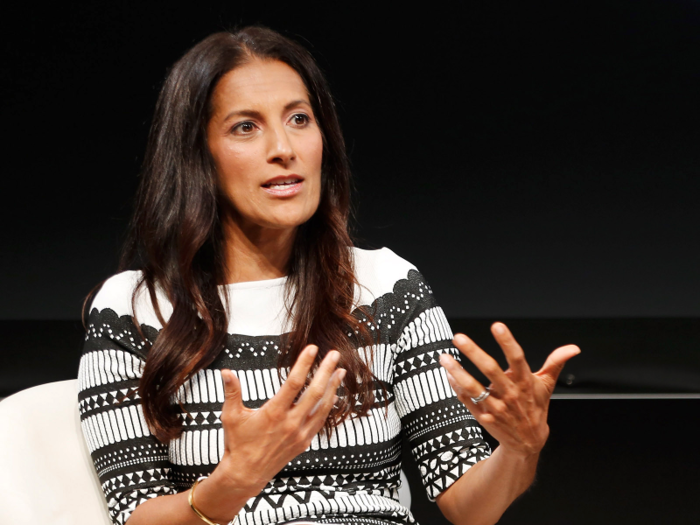
Founder and CEO, Joyus; Founder, theBoardlist
After experiencing sexism at her first Silicon Valley job, Cassidy knew the state of diversity in the industry needed to change. So she created theBoardlist, which helps startups and private companies find women to serve as independent directors on boards. The list of potential female board members comes entirely from recommendations of hand-selected successful Valley entrepreneurs, and the company has already compiled a list of 1,000 qualified women endorsed by about 200 business professionals and is hosting information on about 60 open board seats.
Divya Nag

Head of ResearchKit and CareKit, Apple
Before ResearchKit, Nag dropped out of Stanford, founded Stem Cell Theranostics, and built Stanford's official medical innovation accelerator program. She joined Apple in 2014 and now leads the company's charge into the health tech realm, specifically with its open-source developer toolbox that provides data storage and sharing. Medical personnel use the technology in hospitals as a way to monitor and keep tabs on their patients. Plus, researchers can use the data to study diseases and health trends.
Anne Wojcicki

Cofounder and CEO, 23andMe
Two years after Wojcicki's personal genetics company, 23andMe, was ordered by the Food and Drug Administration to halt operations for misrepresenting its testing reports as medical advice, the company relaunched last fall with $115 million in new funding at a valuation of $1.1 billion. It now offers a new $199 spit-and-submit test that provides users with 60-plus FDA-approved reports.
The more people know about their genetics, Wojcicki believes, the more informed their health and wellness decisions will be. And 80% of the company's 1 million genotyped customers have agreed to share their data with 23andMe for potentially groundbreakingscientific and medical research. This spring, 23andMe reportedly opened a drug lab where it will test treatment ideas, potentially leading to future profit generation for the company.
Angela Ahrendts
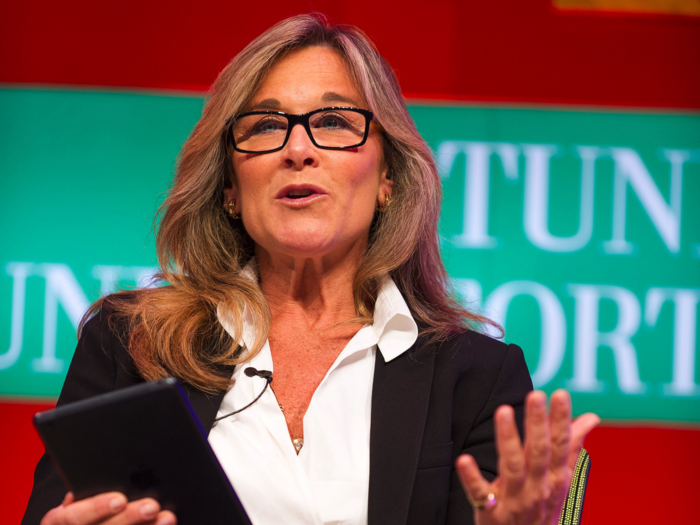
Senior VP of retail and online stores, Apple
Since leaving her post as CEO of Burberry in 2014 to take over Apple's retail and online operations, Ahrendts has reenvisioned what an Apple store could look like, positioning it as a contender in the luxury market. Under Ahrendts, the brand streamlined its inventory and added upscale, non-Apple products to its offerings, such as a futuristic speaker that retails for nearly $2,000.
Ahrendts aims to bridge the divide between Apple's online and offline presence, adding features like a 24-hour meeting space, free Wi-Fi, and ornate decorations to stores, as debuted in San Francisco. Ahrendts hopes to make Apple stores a vital part of the communities they are located in, much in the way Apple products permeate modern life.
Susan Wu, Laura I. Gómez, Erica Baker, Ellen Pao, Tracy Chou, Y-Vonne Hutchinson, Bethanye McKinney Blount, Freada Kapor Klein
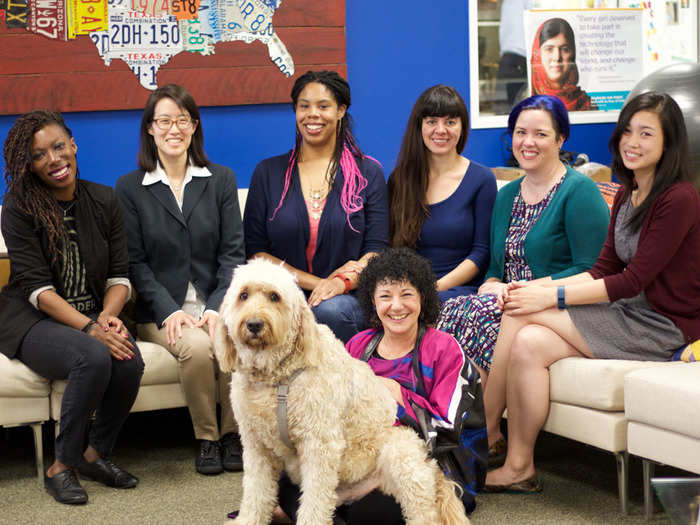
Cofounders, Project Include
The nonprofit, started by eight successful women in Silicon Valley, is one of the biggest diversity initiatives in tech. Project Include asks tech companies to track their rates of inclusion to shed light on the industry's slow diversification. Big players like Google, Microsoft, and Facebook know they lack in diversity, so the nonprofit wants to spark change — fast.
Bozoma Saint John

Head of global consumer marketing for Apple Music and iTunes, Apple
Saint John stole the show at this year's Worldwide Developers Conference — she got the audience to rap along to the Sugarhill Gang's "Rapper's Delight" and was dubbed "the coolest person to ever go onstage at an Apple event" by BuzzFeed. Saint John ended up at Apple by way of the company's acquisition of Beats Music, and before that she built Pepsi's music and entertainment marketing group. Her team at Apple revamped Apple Music with features, like lyrics, that excited WWDC's entire crowd.
Susan Wojcicki

CEO, YouTube
Since becoming CEO of Google's YouTube division in 2014, Wojcicki has made a slew of changes. Under her lead, YouTube has dived into virtual reality, live programming, and a $10-a-month ad-free subscription service that aims to monetize the platform's audience more effectively.
YouTube is also rapidly bulking up its advertiser base, signing a $200 million contract with the ad-buying firm Magna Global and experimenting with custom video ads for small businesses. Wojcicki recently introduced an extension of the site's Preferred product that lets brands automatically place their content by YouTube's fastest rising and most popular videos.
Marissa Mayer

CEO, Yahoo
Yahoo is struggling: revenue is down, investors are unhappy, and the company is bleeding money into acquisitions that aren't providing the rescue the company needs. In the midst of Yahoo's plight, many place the blame on Mayer for failing to turn things around in the four years since she took over.
But Mayer isn't going down without a fight. She has stayed firmly at the helm of the company, determined to either figure out how to get Yahoo out of the red or dismantle the ship.
Sheryl Sandberg

Chief operating officer, Facebook
As UC Berkeley's graduation speaker, Sandberg delivered a moving address about the death of her husband, Dave Goldberg, in May 2015. Her comments about resilience in the face of loss show that she is a force to be reckoned with, professionally and otherwise. For the past year, she has been a single parent to her two children while still leading Facebook as its chief operating officer. Outside that, she also backs Globality, a startup with the mission to advance the global economy by allowing more businesses to export products. Still, she says, "being a mother is the most important — and most humbling — job I've ever had."
Diane Bryant
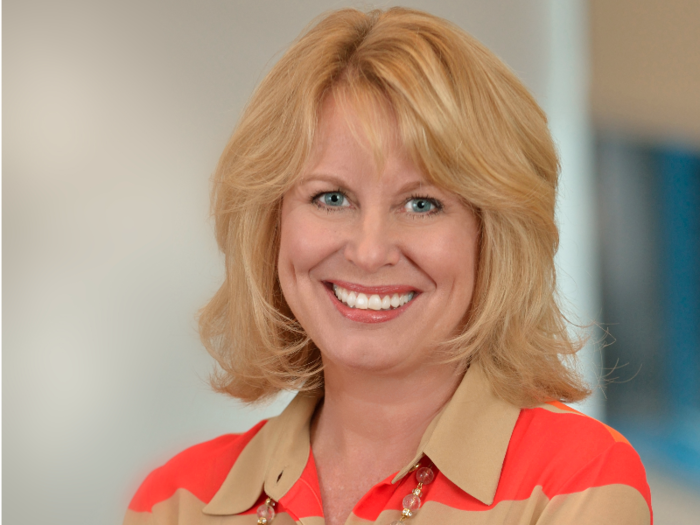
Senior VP and general manager, Data Center Group, Intel
In the midst of a declining PC market, Bryant keeps Intel alive as head of the company's most profitable and fastest-growing unit, its Data Center Group. The unit creates chips that power internet services like autonomous cars, smart grids, and drones, and last year it generated $16 billion in revenue, or about 30% of Intel's total sales. The company's new focus on the Internet of Things puts Bryant at the forefront of Intel's potential for innovation.
Regina Dugan
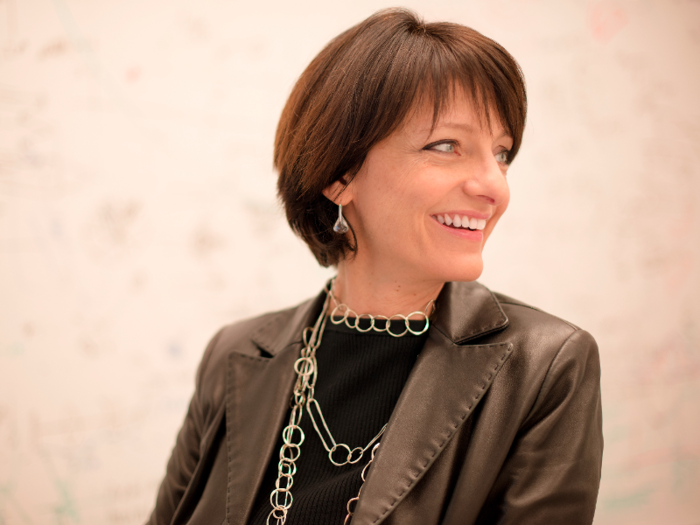
Head of Building 8, Facebook
This year, Dugan left her position as head of Google's Advanced Technology and Projects Group for Facebook, where she was hired to spearhead the company's new Building 8 initiative. The social network tasked Dugan and her team with creating hardware that will expand its product development efforts. It will be interesting to see where Dugan, who advocates rapid prototyping, takes Building 8.
Diane Greene
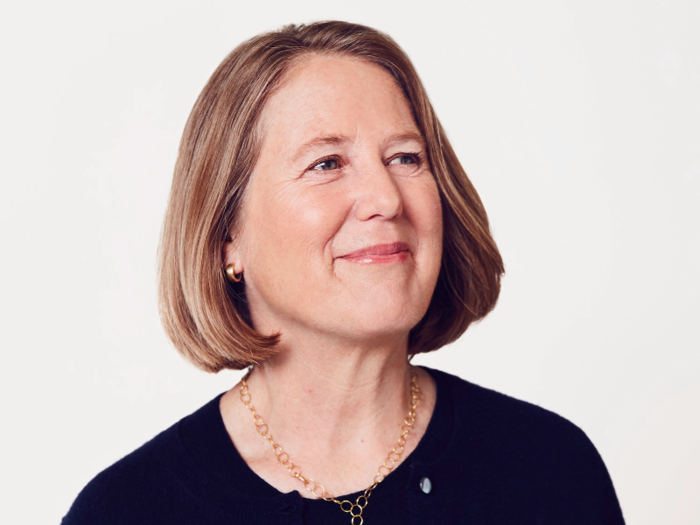
Founder, Bebop; senior VP of cloud businesses, Google
Since Google's parent company, Alphabet, bought Bebop for $380 million last year, Greene has been making waves at the Silicon Valley giant. Eight months ago, she was appointed head of the company's cloud efforts. She upended Google for Work, hiring sales and support personnel, creating a Global Alliance program, and building industry-specific units for clients. By collaborating with Google's customers, Greene and her team leverage data and tools from Google and other companies, transforming the way the cloud is used.
Meg Whitman

President and CEO of Hewlett Packard Enterprise; chairwoman of HP Inc.
After years of sliding profits, troublesome acquisitions, and thousands of layoffs, Whitman decided to take drastic measures help boost Hewlett Packard back to its former glory. So she split the IT giant into two leaner, more focused ventures. Hewlett Packard Enterprise took charge of selling hardware, such as servers, while HP Inc. remained in control of printers and PCs.
Then in May, Whitman divided the company even further, spinning off HPE's business enterprise services and merging with Computer Sciences in hopes of — once again — becoming a serious competitor in the information technology space. In addition to overseeing the entire undertaking, Whitman serves as HPE's CEO and is on the board of all three new companies.
Popular Right Now
Popular Keywords
Advertisement